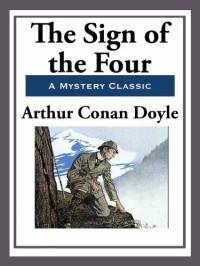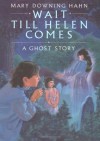Familiar Diversions
I'm a librarian who loves anime, manga, and reading a wide variety of genres.
Currently reading
The Sign of the Four by Sir Arthur Conan Doyle

I've only ever read a handful of the original Sherlock Holmes stories and novels, and I keep meaning to fix that. Although it's been a while since I last read A Study in Scarlet, I remembered enough to know that I wasn't a huge fan of it, so I decided to skip to the next one, The Sign of the Four. I downloaded it for free from Project Gutenberg.
This one starts with Holmes injecting cocaine into himself while Watson, appalled and disapproving, watches. Holmes is bored, bored, bored, and unless something interesting comes along, he plans to float on a layer of drugs, Watson's worries about the possibility of lasting damage be damned. Thankfully, Miss Mary Morstan arrives with a reasonably interesting case.
Miss Morstan's father has been missing for nearly ten years. Six years ago, she began receiving mysterious packages every year, each one containing a large pearl. Only that morning, she received a letter saying that she was a “wronged woman” and that she would have justice if she went to a particular meeting place. She could bring two friends, but was asked not to notify the police. Holmes and Watson decide to assist her, Holmes because he's intrigued and Watson because Miss Morstan is pretty. Luckily for Holmes, the case quickly becomes more complex.
It may be a result of having seen a lot of Sherlock Holmes film and TV adaptations, but I feel like I have a better appreciation for Holmes and Watson's interactions now than I did several years ago. I especially liked their conversation at the beginning of the book, despite Holmes engaging in self-destructive behavior as they were having it. Watson didn't notice, but I do believe I caught Holmes fishing for compliments. The bit with Watson's brother's watch was nice, too. Holmes was overly blunt, but kinder than some adaptations have painted him.
The mystery itself was...meh. I was fairly interested, up until the part where the guy who was responsible for everything launched into his long explanation of how he originally came by the treasure and was then wronged. A Study in Scarlet did something similar, and I disliked it in that novel, too.
I also had issues with the whole “cannibalistic savages who inexplicably use poison darts” aspect. It irked me that supposedly the only reason one character died was because of the “savage instincts” of that accomplice. There were additional problems even just on the level of believability. I mean, wouldn't it be a bad idea for cannibals who eat at least some of their meat raw to hunt with poisoned darts?
Like A Study in Scarlet, this was a bit disappointing overall, but Holmes and Watson were still enjoyable to read about.
(Original review posted on A Library Girl's Familiar Diversions.)













 8
8
 3
3